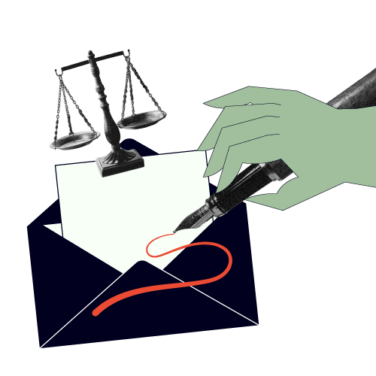The best psychology books for lawyers offer crucial insights into human behavior, vital for any legal professional aiming to excel. From seasoned attorneys to law students, these selections cover mental health, work-life balance, and effective argumentation techniques. This curated list is designed to enhance your legal practice and personal development.
17 Best Psychology Books for Lawyers
- Influence: The Psychology of Persuasion by Robert B. Cialdini
- Beyond Smart: Lawyering with Emotional Intelligence by Ronda Muir
- Thinking, Fast and Slow by Daniel Kahneman
- Psychology for Lawyers by Jennifer K. Robbennolt and Jean R. Sternlight
- Making Your Case by Bryan A. Garner and Antonin Scalia
- Storytelling for Lawyers by Philip Meyer
- Lawyers as Changemakers by J. Kim Wright
- The Happy Lawyer by Nancy Levit and Douglas O. Linder
- Buddha's Brain: The Practical Neuroscience of Happiness, Love, and Wisdom by Rick Hanson and Richard Mendius
- Forensic and Legal Psychology by Mark Costanzo and Daniel Krauss
- The Oxford Handbook of Psychology and Law by David DeMatteo and Kyle C. Scherr
- Psychological Science and the Law by Neil Brewer and Amy Bradfield Douglass
- How to Argue and Win Every Time by Gerry Spence
- Mindset: The New Psychology of Success by Carol S. S. Dweck
- The Authentic Attorney by Stephen A. Hnat and Ven Johnson Esq
- The Psychology of Law by Bruce D. Sales and Daniel A. Krauss
- The Science of Attorney Advocacy by Jessica Findley and Bruce D. Sales
Overviews Of The 17 Best Psychology Books for Lawyers
Here’s a quick summary of each book, what you’ll learn, and why you should read it, plus a quote I like from the book. I added the author’s LinkedIn and other places to connect with them online.
1. Influence: The Psychology of Persuasion by Robert B. Cialdini
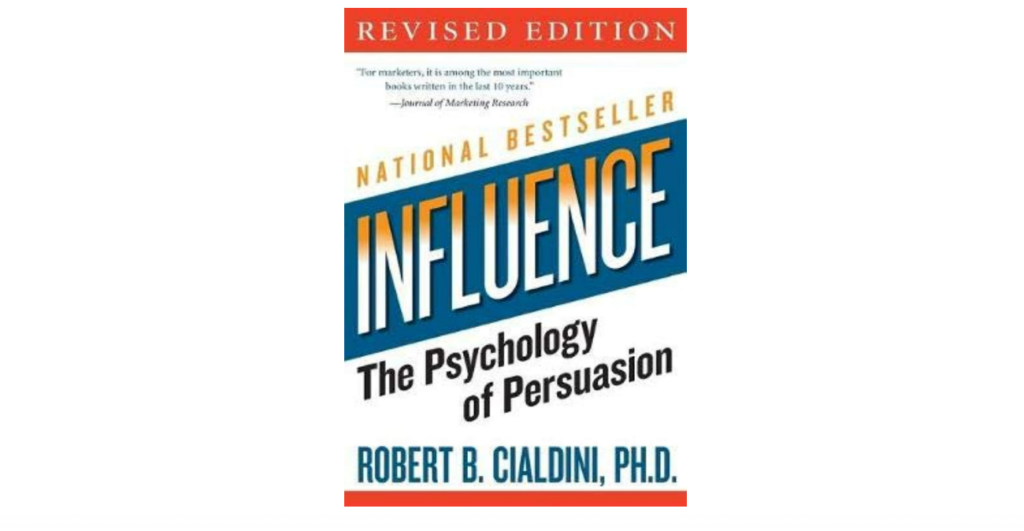
Summary:
This groundbreaking book delves into the psychology behind why people say "yes" and how to apply these understandings in various aspects of marketing.
What You'll Learn:
Understand the six universal principles of persuasion and how to use them to become a skilled persuader.
Why You Should Read It:
Dr. Cialdini’s research will empower you to recognize and defend against undue influences, ensuring you maintain autonomy in decision-making.
Quote From The Book:
“People seem to be more motivated by the thought of losing something than by the thought of gaining something of equal value.”
About The Author:
Dr. Robert B. Cialdini is a renowned psychologist and researcher. Connect with him on LinkedIn, Twitter, and his personal website.
2. Beyond Smart: Lawyering with Emotional Intelligence by Ronda Muir

Summary:
Muir makes the compelling case that lawyers can become better professionals, and happier individuals, by becoming more emotionally intelligent.
What You'll Learn:
Dive deep into the role emotional intelligence plays in successful lawyering, including its impact on negotiation, leadership, and judgment.
Why You Should Read It:
In a profession dominated by logic, expanding your emotional acumen will give you a competitive edge.
Quote From The Book:
“Understanding and improving our emotional intelligence will improve our practice of law.”
About The Author:
Ronda Muir is an authority on the application of psychology to the practice of law. Engage with her on LinkedIn, and her personal website.
3. Thinking, Fast and Slow by Daniel Kahneman
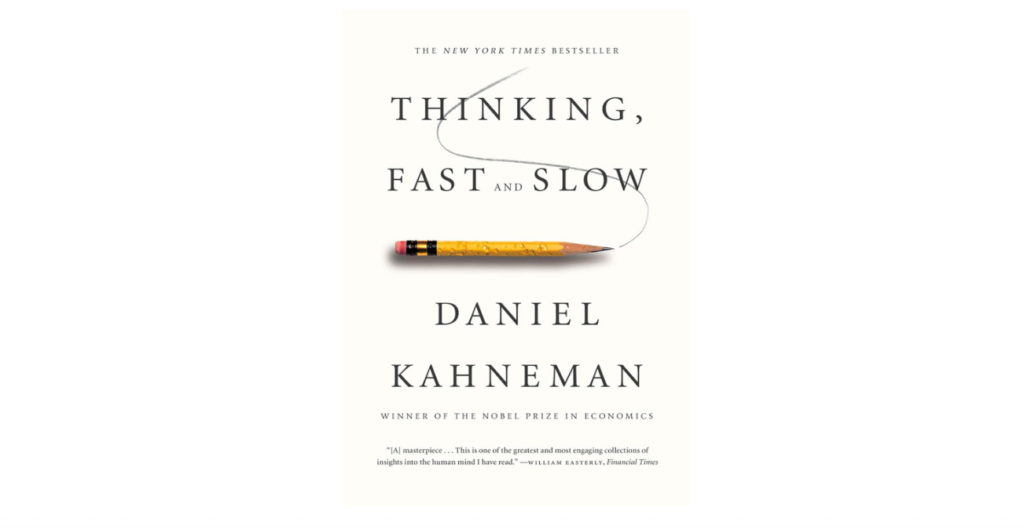
Summary:
A New York Times bestseller, Kahneman's masterpiece unveils the dual systems that drive the way we think—System 1, which is fast and intuitive, and System 2, which is slow and deliberate.
What You'll Learn:
Gain insights into how these two thinking systems shape the judgments and decisions we make in our everyday lives.
Why You Should Read It:
Challenge your intuitive assumptions and refine your decision-making skills, both in your legal practice and personal life.
Quote From The Book:
“Nothing in life is as important as you think it is, while you are thinking about it.”
About The Author:
Daniel Kahneman, a Nobel laureate in Economics, is a senior scholar at Princeton University. Connect with his profile on Twitter, and more about his works on his Academic Page.
4. Psychology for Lawyers by Jennifer K. Robbennolt and Jean R. Sternlight
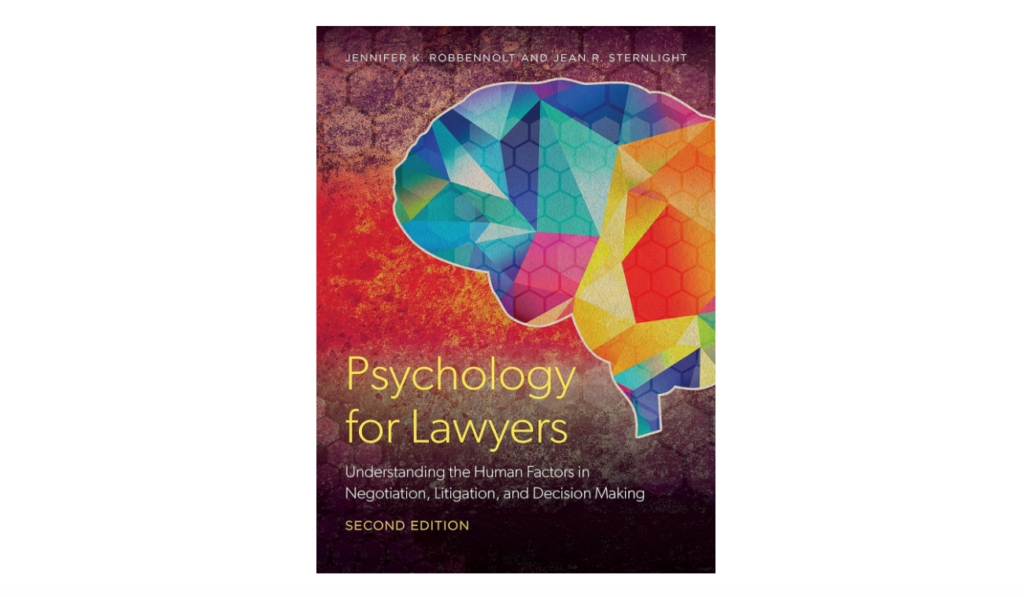
Summary:
This insightful book invites lawyers to better grasp the human biases and social influences that underlie decision-making processes in the realm of law.
What You'll Learn:
Acquire essential knowledge on how psychological understanding enhances client relations, negotiations, and litigation strategies.
Why You Should Read It:
This book, recognized by the American Bar Association, will illuminate how a nuanced psychological approach can drastically improve your law practice.
Quote From The Book:
“Lawyers who understand psychology can be more effective interviewers and counselors, can make more compelling arguments, and can develop more successful negotiation strategies.”
About The Author:
Jennifer K. Robbennolt and Jean R. Sternlight, both law professors, are authorities in legal psychology. Learn more about Robbennolt's work on her academic page and Sternlight's contributions through her LinkedIn.
5. Making Your Case by Bryan A. Garner and Antonin Scalia
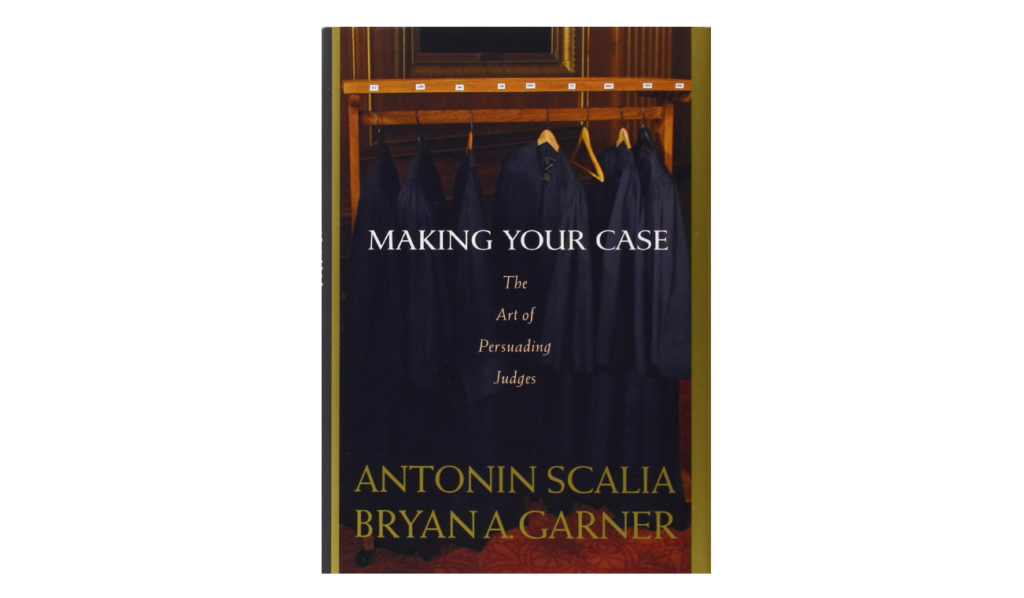
Summary:
This comprehensive guide offers detailed strategies for presenting your argument compellingly in court, directly from the perspectives of a leading legal mind and a judicial titan.
What You'll Learn:
Master the art of advocacy by learning how to craft reasoning, write briefs, and deliver oral arguments to persuade judges effectively.
Why You Should Read It:
It’s a unique opportunity to learn rhetoric and argumentation in law from a Supreme Court Justice's viewpoint and one of the best legal writers of our era.
Quote From The Book:
“The experienced lawyer knows that while legal reasoning is a kind of reasoning, not all kinds of reasoning are legal reasoning.”
About The Author:
Bryan A. Garner, a noted legal scholar, collaborates here with Justice Antonin Scalia, one of the judiciary's most influential figures. Connect with Garner on Twitter, and explore Scalia's works on the Amazon.
6. Storytelling for Lawyers by Philip Meyer
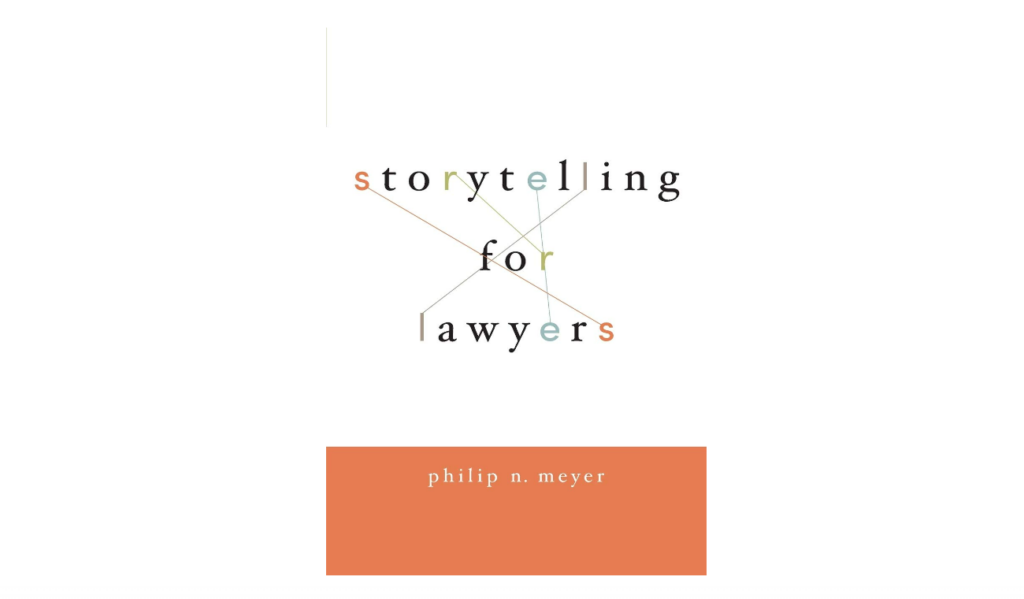
Summary:
Meyer convincingly argues that storytelling’s power can build compelling cases and shows lawyers how to harness narratives in their practice.
What You'll Learn:
Understand how to construct narratives that resonate, using the elements of storytelling to sway judges and juries.
Why You Should Read It:
By integrating storytelling into your legal arsenal, you’ll connect more profoundly with every listener, transforming dry facts into persuasive narratives.
Quote From The Book:
“Facts are always more compelling when wrapped in the fabric of a story.”
About The Author:
Philip Meyer, a professor at Vermont Law School, has particular expertise in integrating legal practice with narrative techniques. Read more about his innovative approach on his academic page.
7. Lawyers as Changemakers by J. Kim Wright
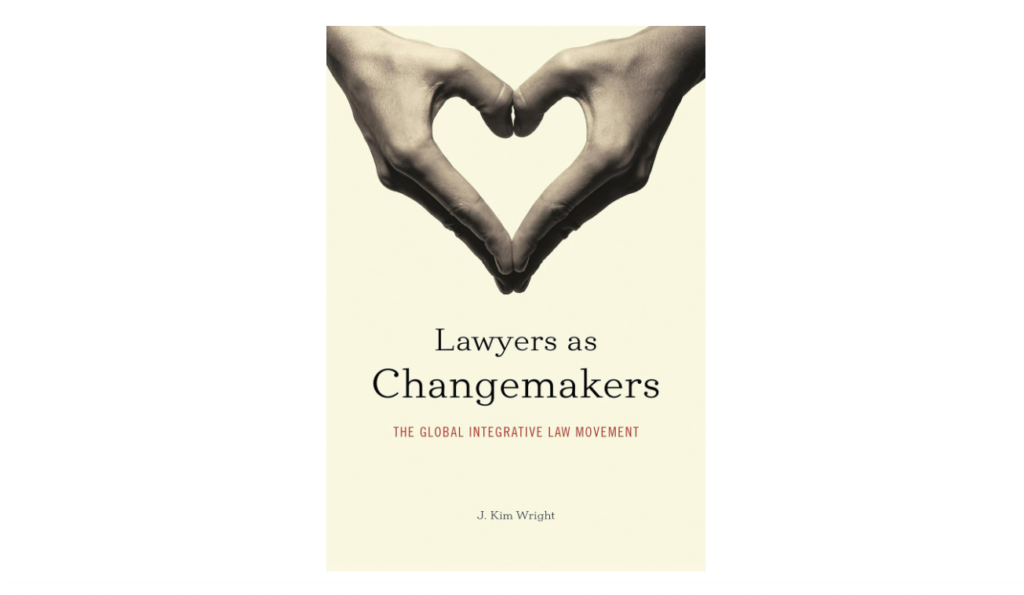
Summary:
Wright's pioneering work introduces the integrative law movement, emphasizing a holistic approach to legal practice that incorporates emotional intelligence, systemic problem-solving, and a focus on peacemaking.
What You'll Learn:
Discover innovative legal models that stress healing and transformation rather than adversarial conflict, and understand your role in fostering global change.
Why You Should Read It:
This book is essential for lawyers seeking to be at the forefront of positive systemic change in the legal profession, creating a more humane and just practice.
Quote From The Book:
“Integrative law isn’t just a method. It’s a movement.”
About The Author:
J. Kim Wright is a trailblazer in legal innovation and advocacy for change in the justice system. Connect with her on LinkedIn, and her personal website.
8. The Happy Lawyer by Nancy Levit and Douglas O. Linder

Summary:
Levit and Linder offer an insightful exploration into the levels of dissatisfaction within the legal profession, providing practical solutions for finding happiness in legal careers.
What You'll Learn:
Gain insights into the challenges of the legal profession and strategies to find fulfillment in your legal career, balancing personal life and professional satisfaction.
Why You Should Read It:
If you’re feeling the strains common in law practice, this book guides you toward a more satisfying and balanced professional life.
Quote From The Book:
“Happiness is not a luxury. It is the fuel that drives us.”
About The Author:
Nancy Levit and Douglas O. Linder are esteemed legal scholars passionate about improving lawyers' professional lives. Learn more about Levit through her University Profile and connect with Linder via his LinkedIn profile.
9. Buddha's Brain: The Practical Neuroscience of Happiness, Love, and Wisdom by Rick Hanson and Richard Mendius
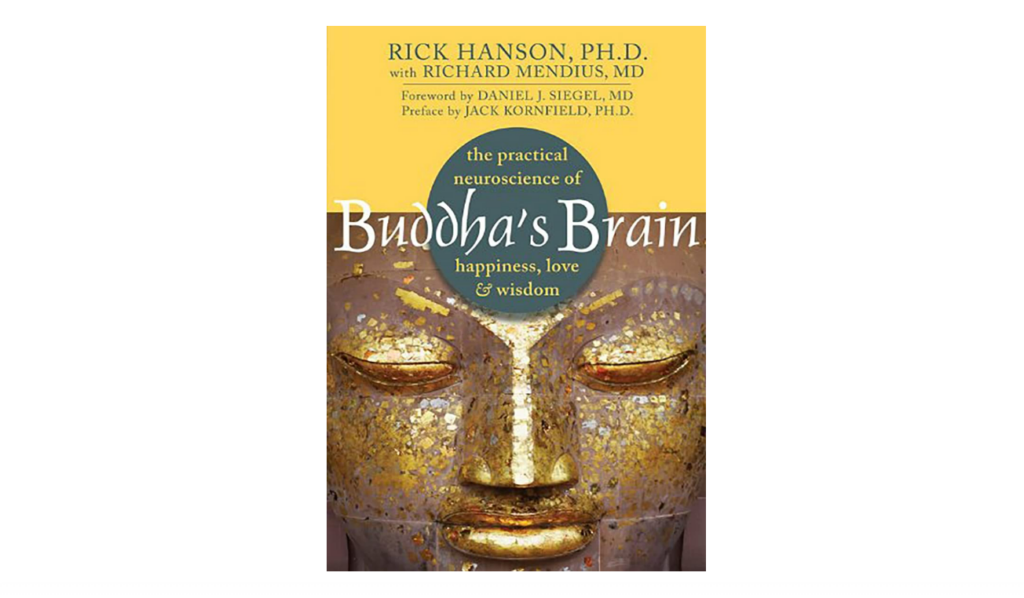
Summary:
This book marries ancient wisdom with modern neuroscience, illustrating how mindfulness and meditation can physically reshape your brain for greater happiness, love, and wisdom.
What You'll Learn:
Understand the neurological mechanisms behind your mind and emotions, and how to rewire your brain towards positive experiences, fostering a peaceful mind.
Why You Should Read It:
It’s a transformative read for those who seek to overcome the innate biases of the brain, cultivating a mindset beneficial in both personal and professional spheres.
Quote From The Book:
“The mind uses the brain to create the mind.”
About The Author:
Rick Hanson is a neuropsychologist and meditation teacher, and Richard Mendius is a neurologist with a strong interest in the practical applications of neuroscience. Find Hanson on LinkedIn, Twitter, and his personal website, and learn more about Mendius’s work through various resources.
10. Forensic and Legal Psychology by Mark Costanzo and Daniel Krauss
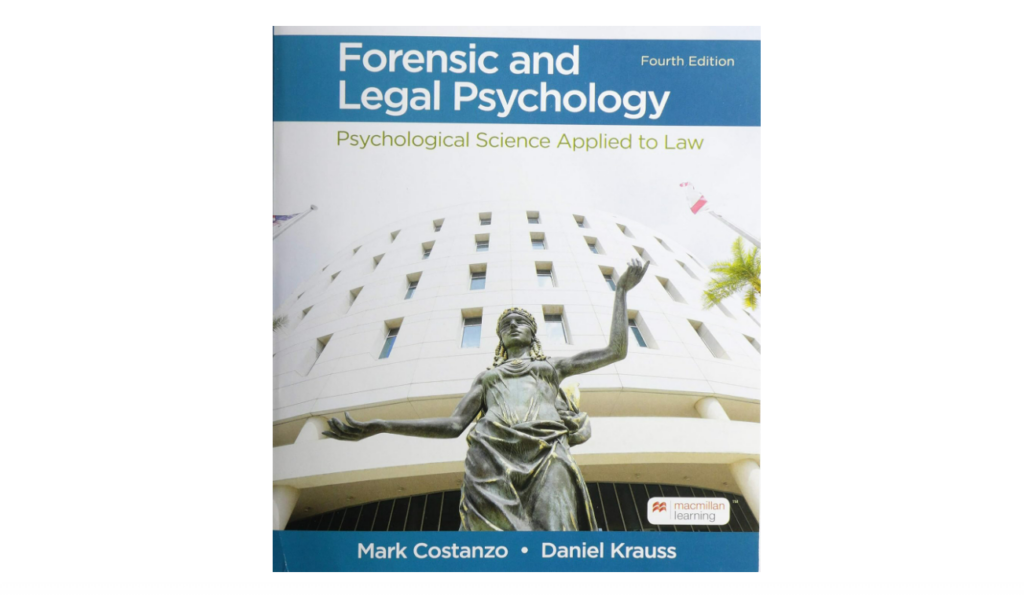
Summary:
This book utilizes real-world examples to dive into the comprehensive relationship between psychological science and its practical applications in law.
What You'll Learn:
Grasp how psychological theories inform various legal issues, including law enforcement decision-making, protecting children's testimony, and the reliability of eyewitness accounts.
Why You Should Read It:
It provides an indispensable, detailed understanding of how psychology is integral to resolving ethical dilemmas, improving legal practices, and enhancing the judicial system.
Quote From The Book:
“Understanding psychology is not just an academic exercise; it has real-world, life-or-death consequences in the field of law.”
About The Author:
Mark Costanzo is a renowned professor with extensive contributions to social psychology, and Daniel Krauss is a forensic and legal psychologist. Learn more about Costanzo and Krauss's achievements on their faculty profiles.
11. The Oxford Handbook of Psychology and Law by David DeMatteo and Kyle C. Scherr
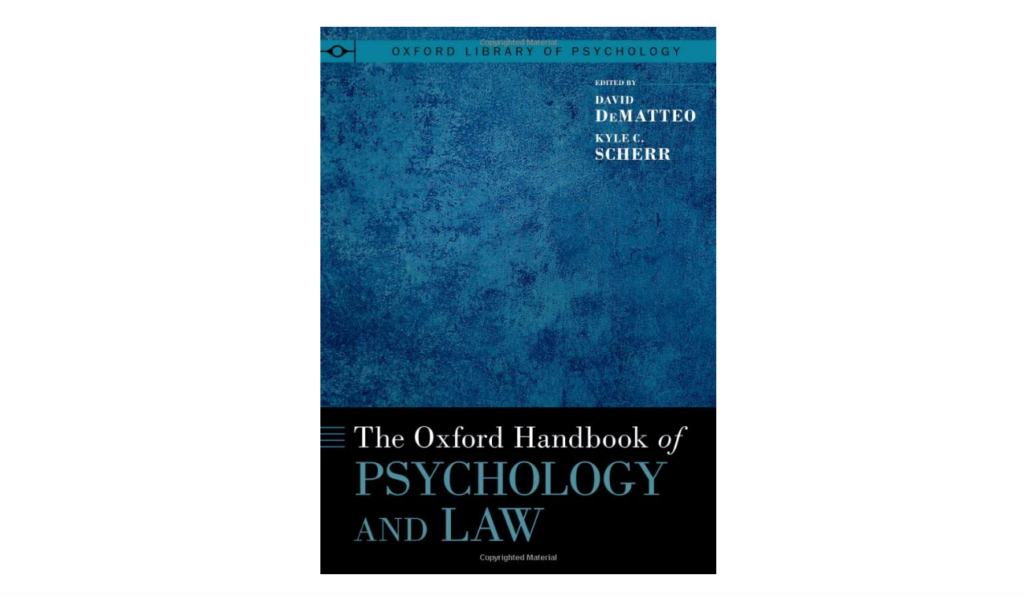
Summary:
This handbook is an authoritative volume that critically examines the intersection of psychology and law, providing a foundational, contemporary, and prospective view.
What You'll Learn:
Delve into the psychological aspects influencing legal procedures, from courtroom dynamics and decision-making to criminal behavior and its implications.
Why You Should Read It:
A valuable resource for legal professionals seeking an exhaustive, scholarly commentary on the application of psychology in various legal contexts.
Quote From The Book:
“The realm of law and the field of psychology are not just intertwined; they are inseparably coexistent.”
About The Author:
David DeMatteo, JD, PhD, is known for his interdisciplinary work in psychology and law, and Kyle C. Scherr, PhD, is a respected academic in the field of forensic psychology. Connect with DeMatteo on LinkedIn and learn more about Scherr through his academic profile.
12. Psychological Science and the Law by Neil Brewer and Amy Bradfield Douglass
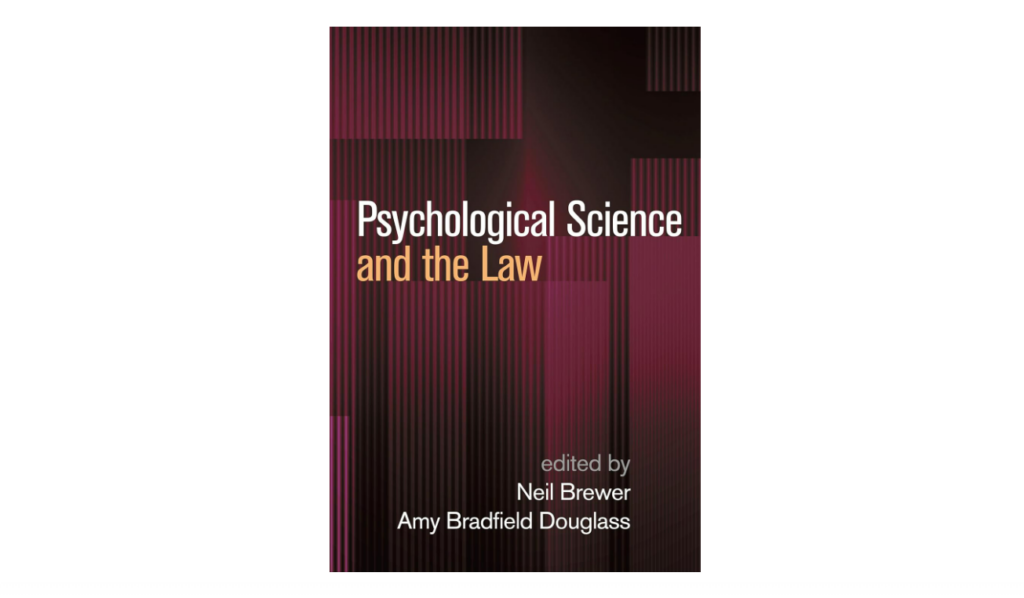
Summary:
The book investigates the compelling ways psychological research can improve legal procedures and judicial decisions, with contributions from leading scholars.
What You'll Learn:
Explore how cutting-edge psychological research enhances legal understanding, particularly in false memories, witness credibility, and the reliability of forensic evidence.
Why You Should Read It:
This is essential for those wanting to understand the profound impact of psychology on legal standards, evidence interpretation, and the pursuit of justice.
Quote From The Book:
“In the interaction of human memory and the law, psychological science acts not just as an observer but often as a corrective force.”
About The Author:
Neil Brewer is distinguished for research on eyewitness memory and face recognition, and Amy Bradfield Douglass is noted for her expertise in memory and the law. Find more about Brewer's work on his research profile and Douglass's contributions on her faculty page.
13. How to Argue and Win Every Time by Gerry Spence
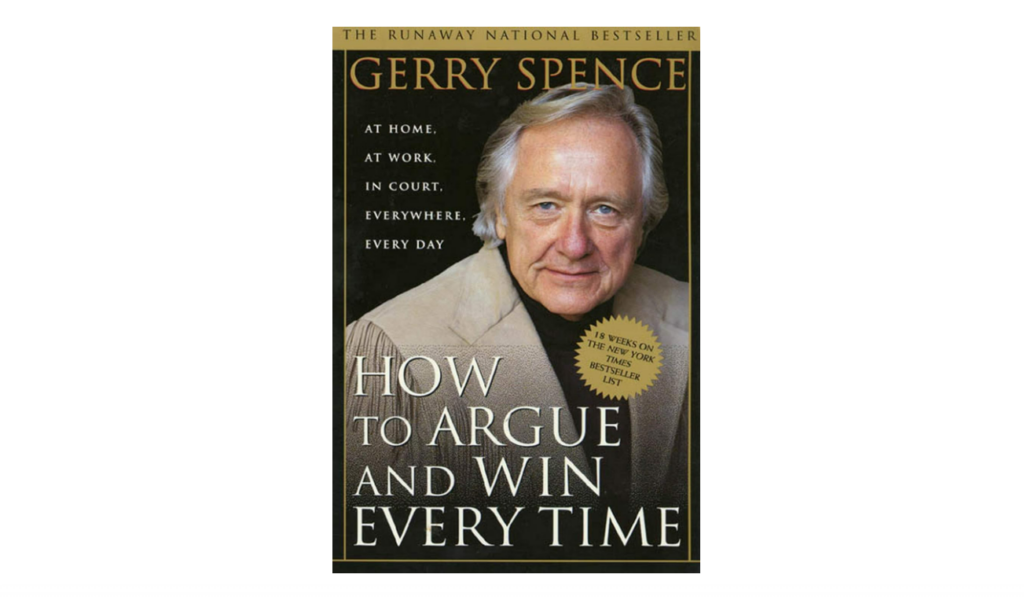
Summary:
Spence provides a compelling view on the art of arguing, portraying it as a natural act that can be a force for positive changes in one’s personal and professional life.
What You'll Learn:
Understand the foundations of persuasive argumentation and discover strategies that enable you to communicate effectively and win arguments without hostility.
Why You Should Read It:
It’s a masterclass in effective communication, offering insights not just for legal victories but for personal relationships and inner growth.
Quote From The Book:
"Argument is the means by which we come to understand and know the truth, the means by which we pass on our knowledge and our heritage."
About The Author:
Gerry Spence, renowned trial lawyer and legal consultant, has a decades-long career marked by numerous high-profile trials. You can explore his legacy through his personal website.
14. Mindset: The New Psychology of Success by Carol S. Dweck
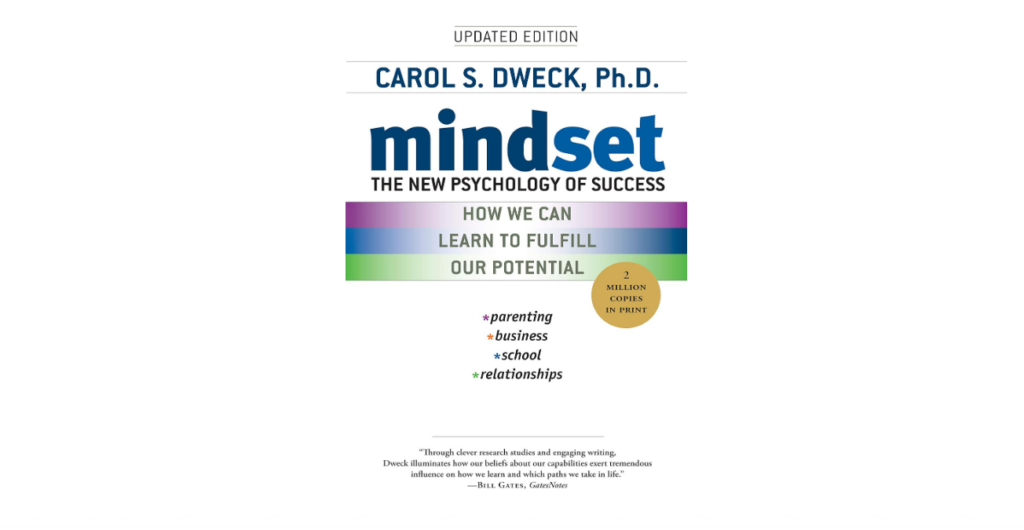
Summary:
Dweck explores the concept of "mindset" in her groundbreaking book, illustrating how our perceptions about our abilities significantly impact our success.
What You'll Learn:
Learn about the "fixed" and "growth" mindsets, and how transitioning from the former to the latter can dramatically influence one's capacity to grow and achieve.
Why You Should Read It:
Essential for anyone seeking personal evolution, this book teaches how a simple shift in mindset can lead to success in various facets of life, including law practice.
Quote From The Book:
“In a growth mindset, challenges are exciting rather than threatening. So rather than thinking, oh, I’m going to reveal my weaknesses, you say, wow, here’s a chance to grow.”
About The Author:
Carol S. Dweck is a Stanford University psychologist well-known for her research on the theory of mindset. Connect with her through her Stanford profile or on Twitter.
15. The Authentic Attorney by Stephen A. Hnat and Ven Johnson Esq
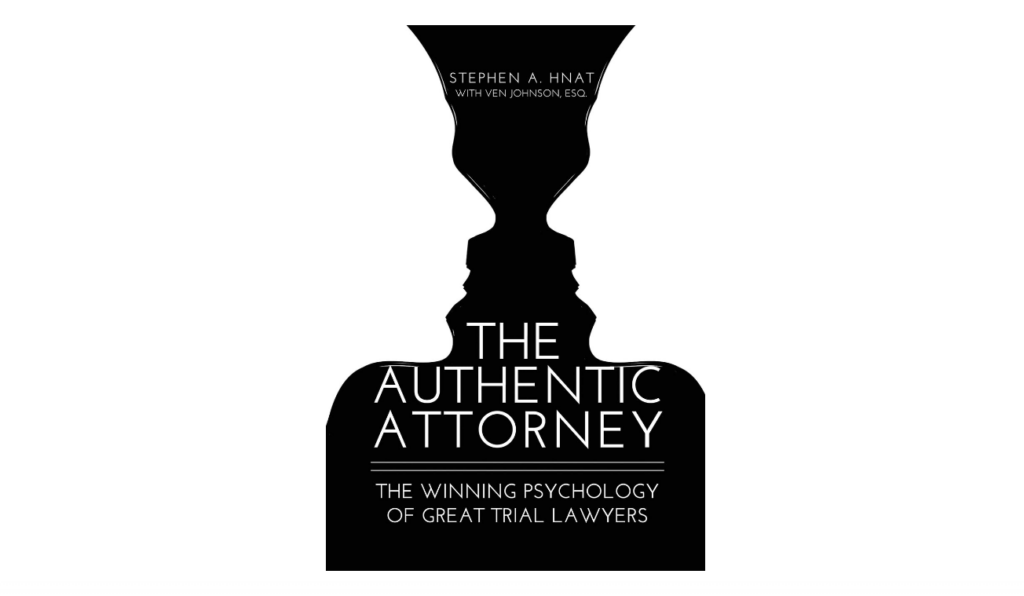
Summary:
This insightful read delves into the psychological aspects that differentiate great trial lawyers, focusing on authenticity as a vital tool for connecting with juries and winning cases.
What You'll Learn:
Absorb the essential psychological strategies that successful attorneys use to present themselves authentically and persuasively in court.
Why You Should Read It:
The book is a treasure for attorneys seeking to break the mold, offering profound insights into harnessing one's unique strengths for courtroom triumph.
Quote From The Book:
"Being authentic does not mean being perfect. It means a deep commitment to being real on a moment-to-moment basis."
About The Author:
Stephen A. Hnat is celebrated for his innovative approaches to trial psychology, and Ven Johnson Esq brings his rich, practical insights into the field. Connect with Stephen Hnat on LinkedIn and Ven Johnson on LinkedIn.
16. The Psychology of Law by Bruce D. Sales and Daniel A. Krauss
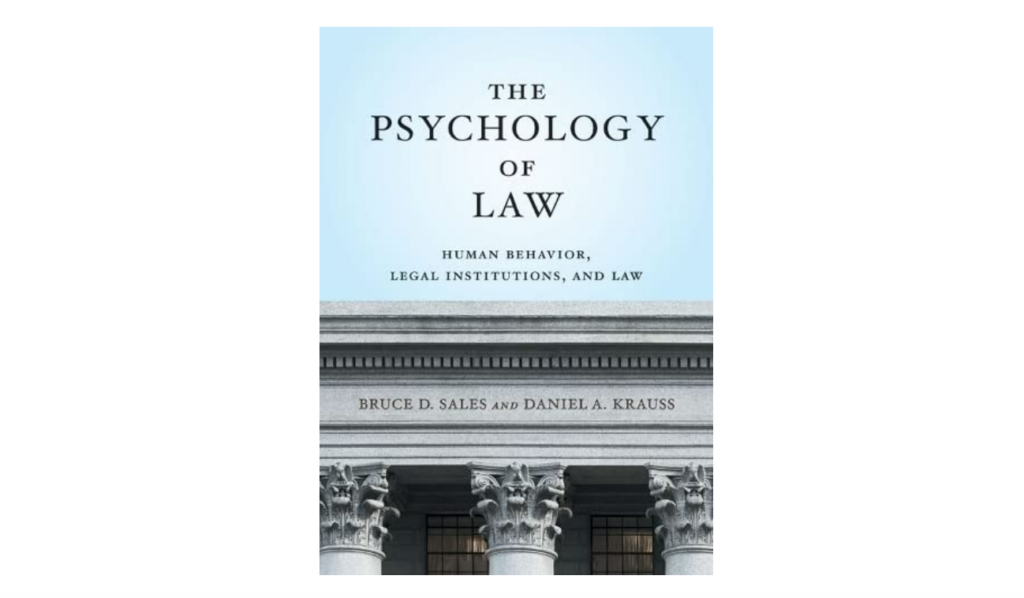
Summary:
Sales and Krauss delve deep into the intersection of psychology and law, examining how human behavior influences the justice system.
What You'll Learn:
This book enlightens readers on the complexities of human behavior in legal contexts, shedding light on how psychological factors affect legal decisions.
Why You Should Read It:
It's crucial for those wanting to understand the underpinnings of human behavior in legal settings, enhancing the ability to create more informed and equitable legal strategies.
Quote From The Book:
"Understanding the psychology behind legal processes is instrumental in shaping a more just society."
About The Author:
Bruce D. Sales is a pioneer in legal psychology, while Daniel A. Krauss continues to contribute significantly to the field. Connect with Bruce on his faculty profile and Daniel also on his faculty profile.
17. The Science of Attorney Advocacy by Jessica Findley and Bruce D. Sales
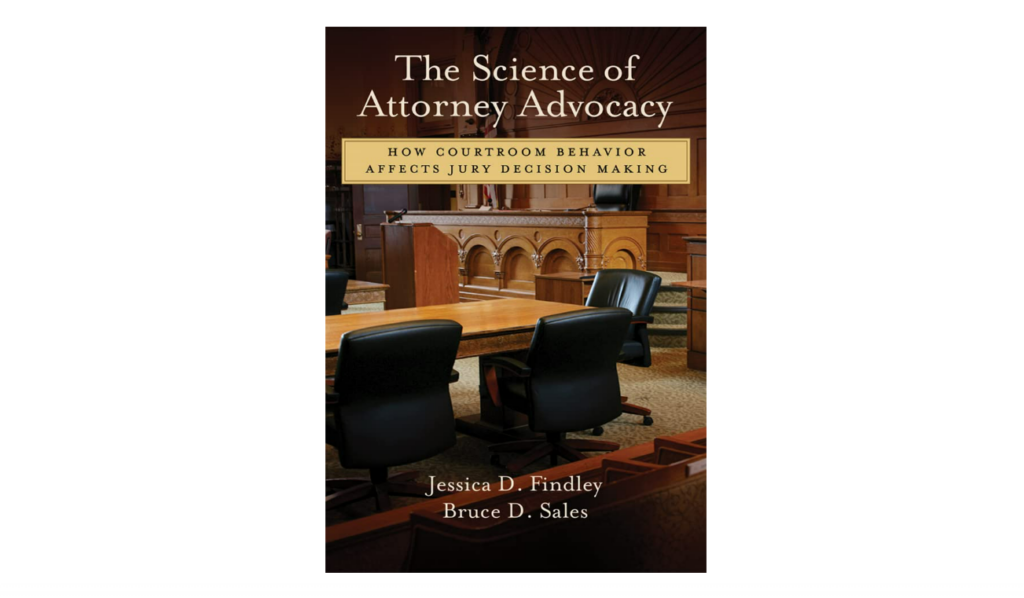
Summary:
Findley and Sales present groundbreaking research on the impact of attorney behavior on juries, providing a scientific lens on courtroom dynamics.
What You'll Learn:
Readers will gain insights into how attorneys' nonverbal cues and courtroom demeanor can influence jury perceptions and verdicts.
Why You Should Read It:
This book is indispensable for attorneys seeking to understand the nuances of their own behavior and its significant impact on juror decision-making.
Quote From The Book:
"Even subtle cues can significantly sway a jury, making the conscious control of one's own behavior in the courtroom paramount."
About The Author:
Jessica Findley's research in legal psychology has shaped the modern understanding of attorney advocacy, while Bruce D. Sales's extensive work continues to define the field. Find Jessica on LinkedIn and learn more about Bruce on his faculty profile.
More Great Books For Lawyers
Here are some other lists of books for lawyers:
- Books for starting a law firm or expanding a firm
- Useful general law firm management books for managing the day-to-day of your practice, and books for law firm owners covering higher-level strategy
- Law firm marketing books covering aspects of referral marketing, digital marketing, advertising, and more
- Trial lawyer books covering topics ranging from public law to family law, client advocacy, criminal procedure, and civil litigation
- Books for managing commercial transactions including corporate law books, M&A books, and books for managing bankruptcy
- Personal injury lawyer books covering insurance negotiations, claims investigations, evidence gathering and discovery, and client representation
Join For More Legal Practice Insights
For more legal insights and resources, subscribe to our newsletter and join a community of innovative legal practitioners shaping the future of law.


